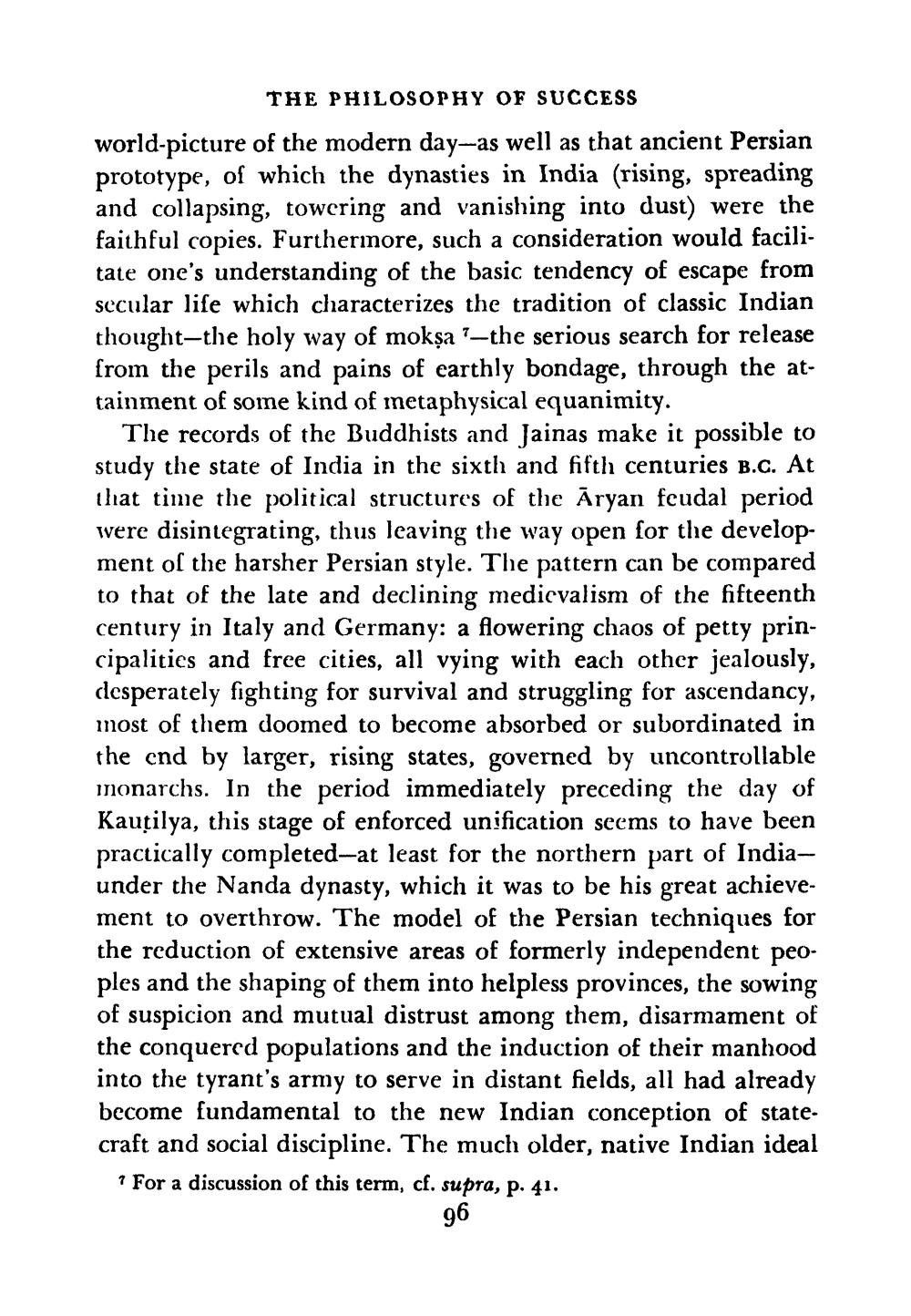________________
THE PHILOSOPHY OF SUCCESS
world-picture of the modern day--as well as that ancient Persian prototype, of which the dynasties in India (rising, spreading and collapsing, towering and vanishing into dust) were the faithful copies. Furthermore, such a consideration would facilitate one's understanding of the basic tendency of escape from secular life which characterizes the tradition of classic Indian thought-the holy way of mokṣa -the serious search for release from the perils and pains of earthly bondage, through the attainment of some kind of metaphysical equanimity.
The records of the Buddhists and Jainas make it possible to study the state of India in the sixth and fifth centuries B.C. At that time the political structures of the Aryan feudal period were disintegrating, thus leaving the way open for the development of the harsher Persian style. The pattern can be compared to that of the late and declining medievalism of the fifteenth century in Italy and Germany: a flowering chaos of petty principalities and free cities, all vying with each other jealously, desperately fighting for survival and struggling for ascendancy, most of them doomed to become absorbed or subordinated in the end by larger, rising states, governed by uncontrollable monarchs. In the period immediately preceding the day of Kautilya, this stage of enforced unification seems to have been practically completed-at least for the northern part of Indiaunder the Nanda dynasty, which it was to be his great achievement to overthrow. The model of the Persian techniques for the reduction of extensive areas of formerly independent peoples and the shaping of them into helpless provinces, the sowing of suspicion and mutual distrust among them, disarmament of the conquered populations and the induction of their manhood into the tyrant's army to serve in distant fields, all had already become fundamental to the new Indian conception of statecraft and social discipline. The much older, native Indian ideal
? For a discussion of this term, cf. supra, p. 41.
96




